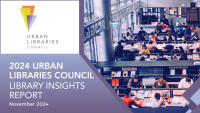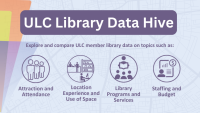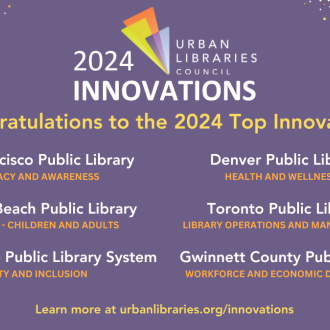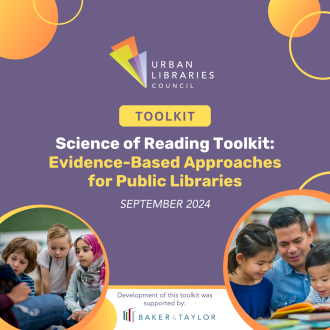Urban Libraries Continue to Rebound from COVID-19 and Adapt to Changing Needs

Written by Brooks Rainwater, President and CEO, Urban Libraries Council
This summer, the Urban Libraries Council asked its 187 member libraries across the U.S. and Canada to participate in the second-annual Library Insights Survey (LIS), compiling 2023 data to build on pre-pandemic trends tracked from 2019-2022. Today, we proudly release the 2024 Library Insights Report. This report provides a data-informed view of post-pandemic performance for urban libraries. As we wrap up the year, reflecting on this LIS data will help us set the tone for 2025, inform internal decision-making and communicate the importance of continued library support to our external audiences.

Library Insights Survey
The 2024 survey report draws on responses from 115 ULC member libraries representing nearly 2,300 locations and 87.5 million people. The results of ULC’s Library Insights Survey are deeply encouraging, showing strong rebounds since the COVID-19 pandemic and offering new insights into soaring e-Resource and meeting space usage.
Here are some of the trends we are seeing:
- In-person visits to the library remain on the rise: While commercial and public service spaces have struggled to regain pre-pandemic attendance levels, the most recent data from the LIS shows that libraries recorded a 24% average increase in visits in 2023--a trend expected to continue in 2024.
- Room reservations and use of e-Resources reached new highs, topping pre-pandemic levels: Between 2023 and 2022, the average number of room reservations for all libraries surveyed increased by 52%, surpassing pre-pandemic 2019 levels by 18%. This data presents one of the strongest indicators of the increased use of libraries as flexible spaces that present value to all types of patrons. Respondents also reported an 11% increase in the average number of e-Resources accessed between 2022 and 2023, representing a 40% increase when compared to 2019.
- Significant changes observed in how patrons are engaging with library programs and services: Compared to 2022, the average number of programs offered by libraries rose by approximately 42%, while the average program attendance rose approximately 53%.
- Average and total FTE library staffing is largely at pre-pandemic levels: Overall, after a decline in 2022, the recent LIS data shows a slight increase (3%) in FTE staffing levels in 2023, returning the total FTE staffing numbers closer to pre-pandemic 2019 levels.
- Moderate growth in number of new branch locations recorded, a welcome trend in the face of rising urban populations: Data compiled for the calendar year 2023 shows that 16% of libraries in the LIS sample started construction of at least one new branch location--a total of 25 new branch locations. These new developments average a construction cost of about $695 per square foot.

ULC Library Data Hive
I encourage you all to dig into the report and its accompanying dashboards to get a full view of this data. As with last year’s Library Insights data, all data collected is available for exploring the ULC Data Hive in more detail. The Data Hive outlines LIS data and other publicly available demographic information in dashboards and interactive charts based on the four survey topic areas: Attraction and Attendance, Location Experience and Use of Space, Library Programs and Services, and Staffing and Budget.
Every ULC member has access to the Data Hive through the ULC Member Hub. If you need assistance logging in or retrieving your login information, please reach out to info@urbanlibraries.org for assistance.
Related Articles

Celebrating Groundbreaking Work in Public Libraries: ULC's Innovations Initiative
At the heart of our communities, public libraries are breaking new ground every day. The Urban Libraries Council is proud to showcase these changemakers through our Innovations Initiative, which has amplified transformative projects from our member libraries for 15 years. This year, we are proud that more than 100 ULC member libraries shared nearly 240 innovative ideas to be considered for award recognition.
Read More

Libraries and the Science of Reading is a Winning Combination
To help libraries advance their literacy programs and ensure equitable access to quality education, the Urban Libraries Council developed a Science of Reading Toolkit with guidance on implementing evidence-based reading strategies that can make a meaningful difference in the lives of young readers.
